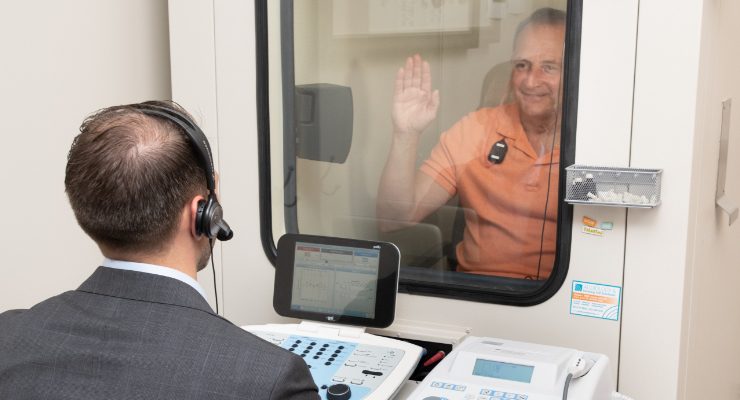
Diabetes and hearing loss are among the most common health issues in the United States.
Statistics show that almost 30 million Americans have diabetes, while more than 34 million people have some form of hearing loss. Those numbers may not be coincidental, according to research. Studies show that people with diabetes are twice as likely to have hearing loss as those without diabetes.
The connection goes further when you consider the 84 million Americans with prediabetes, which is when blood sugar levels are high, but not high enough to be considered diabetes. The rate of hearing loss in this population is 30 percent higher than in those with normal glucose levels.
Audiology & Hearing Aid Solutions encourages those with diabetes and/or hearing loss to learn more about this connection and what measures can be taken to improve hearing health.
Diabetes is a serious health condition occurring when the body is unable to produce or regulate insulin. This creates a buildup of glucose in the bloodstream. The three types of diabetes are:
- Type 1: Most often diagnosed in children or young adults. In Type 1, the pancreas doesn’t produce enough insulin, which causes blood sugar to build up in the bloodstream instead of being used for energy by cells throughout the body.
- Type 2: Between 90-95% of diabetes cases are Type 2, which is when cells don’t respond appropriately to insulin (known as insulin resistance). The pancreas tries to produce more insulin as a result of the resistance, but it can’t keep up and blood sugar levels rise.
- Gestational: Experienced by up to 10% of women during pregnancy. The body doesn’t make enough insulin during pregnancy as cells use the hormone less effectively. This form of diabetes usually vanishes after pregnancy.
The connection between diabetes and hearing loss isn’t certain at this point, although scientists believe it may be due to high blood sugar levels damaging blood vessels throughout the body, including those in the ears.
The tiny hair cells of the inner ear are responsible for translating noise into electrical impulses that are processed into recognizable sounds by the brain’s auditory nerve. These hair cells are particularly sensitive to proper circulation and may be damaged from the blood sugar levels. Once these are damaged or die off, permanent sensorineural hearing loss can result.
If you have diabetes, try to protect your hearing health by taking the following steps:
- Limit exposure to loud sounds by turning down the volume on personal electronic devices
- Maintain a healthy weight to ensure your heart can pump blood properly throughout the body, including the ears
- Get a proper amount of exercise every day to boost circulation. Talk to your doctor about what kinds of exercise are appropriate for you.
Most importantly, diabetics concerned about their hearing loss should schedule an appointment with an audiologist to determine the appropriate treatment plan. Learn more about services available at Audiology & Hearing Aid Solutions’ locations by calling us at 888.573.6412 or contacting us online.



